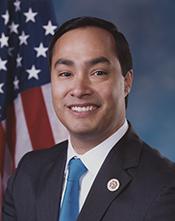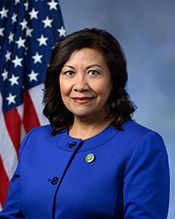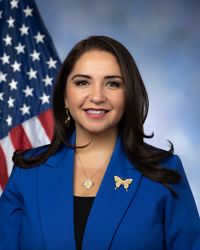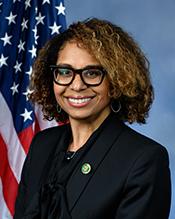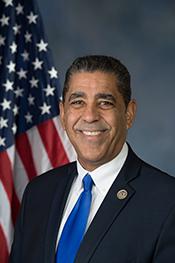0
0
0
Countering disinformation, propaganda, and misinformation in Latin America and the Caribbean, and calling for multi-stakeholder efforts to address the significant detrimental effects that the rise in disinformation, propaganda, and misinformation in regional information environments has on democratic governance, human rights, and United States national interests.
9/20/2024, 9:18 AM
Summary of Bill HRES 1471
Bill 118 hres 1471, also known as the Countering Disinformation, Propaganda, and Misinformation in Latin America and the Caribbean Act, aims to address the growing issue of false information in the region and its negative impact on democratic governance, human rights, and US national interests. The bill calls for a multi-stakeholder approach to combat disinformation, propaganda, and misinformation.
The rise of disinformation in Latin America and the Caribbean has been identified as a significant threat to democracy and human rights in the region. The spread of false information can manipulate public opinion, undermine trust in institutions, and create division among communities. This can have serious consequences for the stability of governments and the protection of human rights.
The bill emphasizes the importance of collaboration between governments, civil society organizations, and the private sector in addressing the spread of disinformation. By working together, these stakeholders can develop strategies to identify and counter false information, promote media literacy, and strengthen independent journalism in the region. Furthermore, the bill highlights the impact of disinformation on US national interests. False information can be used to manipulate public opinion in the region, influence political outcomes, and undermine US foreign policy objectives. By addressing the root causes of disinformation, the US can better protect its interests and promote democratic values in Latin America and the Caribbean. Overall, Bill 118 hres 1471 seeks to address the detrimental effects of disinformation, propaganda, and misinformation in the region through a collaborative and multi-faceted approach. By working together, stakeholders can combat false information, protect democratic governance and human rights, and advance US national interests in Latin America and the Caribbean.
The rise of disinformation in Latin America and the Caribbean has been identified as a significant threat to democracy and human rights in the region. The spread of false information can manipulate public opinion, undermine trust in institutions, and create division among communities. This can have serious consequences for the stability of governments and the protection of human rights.
The bill emphasizes the importance of collaboration between governments, civil society organizations, and the private sector in addressing the spread of disinformation. By working together, these stakeholders can develop strategies to identify and counter false information, promote media literacy, and strengthen independent journalism in the region. Furthermore, the bill highlights the impact of disinformation on US national interests. False information can be used to manipulate public opinion in the region, influence political outcomes, and undermine US foreign policy objectives. By addressing the root causes of disinformation, the US can better protect its interests and promote democratic values in Latin America and the Caribbean. Overall, Bill 118 hres 1471 seeks to address the detrimental effects of disinformation, propaganda, and misinformation in the region through a collaborative and multi-faceted approach. By working together, stakeholders can combat false information, protect democratic governance and human rights, and advance US national interests in Latin America and the Caribbean.
Read the Full Bill
Current Status of Bill HRES 1471
Bill HRES 1471 is currently in the status of Bill Introduced since September 19, 2024. Bill HRES 1471 was introduced during Congress 118 and was introduced to the House on September 19, 2024. Bill HRES 1471's most recent activity was Referred to the House Committee on Foreign Affairs. as of September 19, 2024
Bipartisan Support of Bill HRES 1471
Total Number of Sponsors
1Democrat Sponsors
1Republican Sponsors
0Unaffiliated Sponsors
0Total Number of Cosponsors
12Democrat Cosponsors
12Republican Cosponsors
0Unaffiliated Cosponsors
0Policy Area and Potential Impact of Bill HRES 1471
Primary Policy Focus
Alternate Title(s) of Bill HRES 1471
Countering disinformation, propaganda, and misinformation in Latin America and the Caribbean, and calling for multi-stakeholder efforts to address the significant detrimental effects that the rise in disinformation, propaganda, and misinformation in regional information environments has on democratic governance, human rights, and United States national interests.
Countering disinformation, propaganda, and misinformation in Latin America and the Caribbean, and calling for multi-stakeholder efforts to address the significant detrimental effects that the rise in disinformation, propaganda, and misinformation in regional information environments has on democratic governance, human rights, and United States national interests.
Comments
Sponsors and Cosponsors of HRES 1471
Latest Bills
Providing amounts for the expenses of the Committee on Ethics in the One Hundred Nineteenth Congress.
Bill HRES 131December 12, 2025
Providing for congressional disapproval under chapter 8 of title 5, United States Code, of the rule submitted by the Bureau of Land Management relating to "Central Yukon Record of Decision and Approved Resource Management Plan".
Bill HJRES 106December 12, 2025
Expressing the sense of the House of Representatives in condemning the Government of the People's Republic of China for its harassment and efforts to intimidate American citizens and other individuals on United States soil with the goal of suppressing speech and narratives the People's Republic of China finds unwelcome.
Bill HRES 130December 12, 2025
Providing for congressional disapproval under chapter 8 of title 5, United States Code, of the rule submitted by the Bureau of Land Management relating to "North Dakota Field Office Record of Decision and Approved Resource Management Plan".
Bill HJRES 105December 12, 2025
Providing for congressional disapproval under chapter 8 of title 5, United States Code, of the rule submitted by the Bureau of Land Management relating to "Miles City Field Office Record of Decision and Approved Resource Management Plan Amendment".
Bill HJRES 104December 12, 2025
Providing amounts for the expenses of the Select Committee on the Strategic Competition Between the United States and the Chinese Communist Party in the One Hundred Nineteenth Congress.
Bill HRES 104December 12, 2025
Critical Access for Veterans Care Act
Bill S 1868December 12, 2025
OATH Act of 2025
Bill S 1665December 12, 2025
A bill to extend the authority for modifications to the Second Division Memorial in the District of Columbia.
Bill S 1353December 12, 2025
Saving Our Veterans Lives Act of 2025
Bill S 926December 12, 2025
